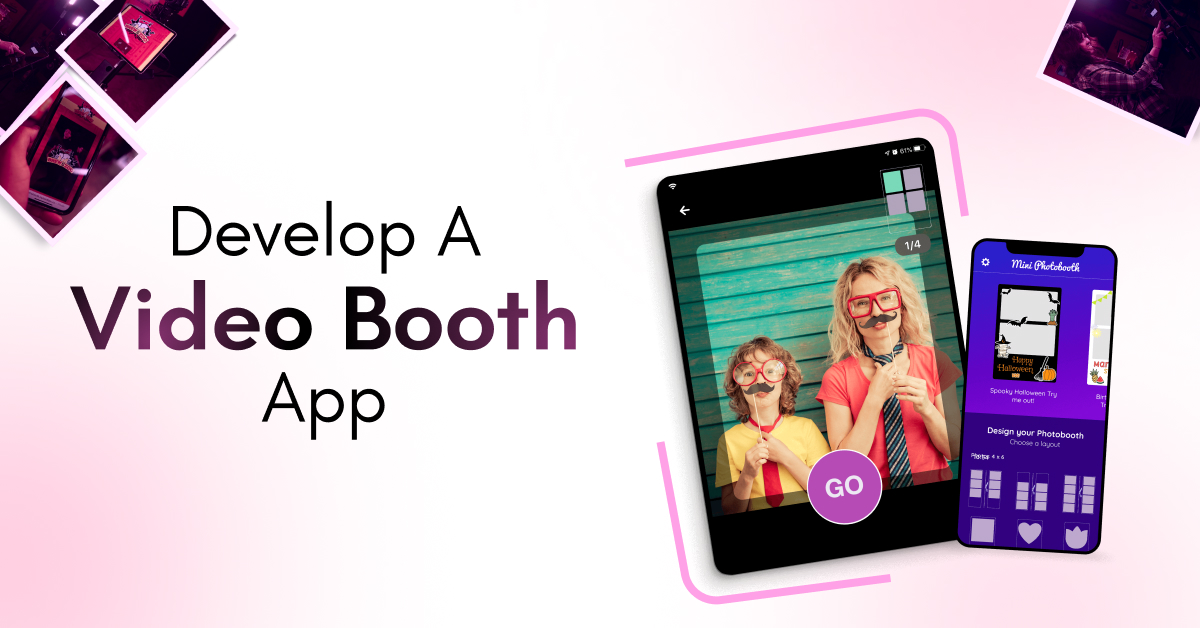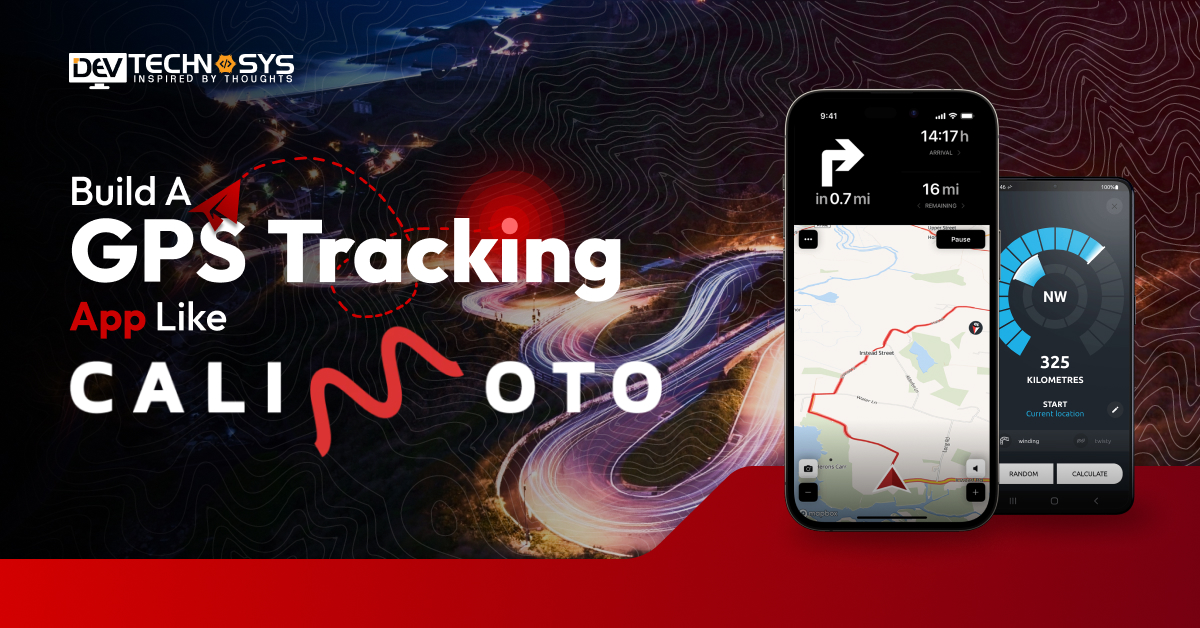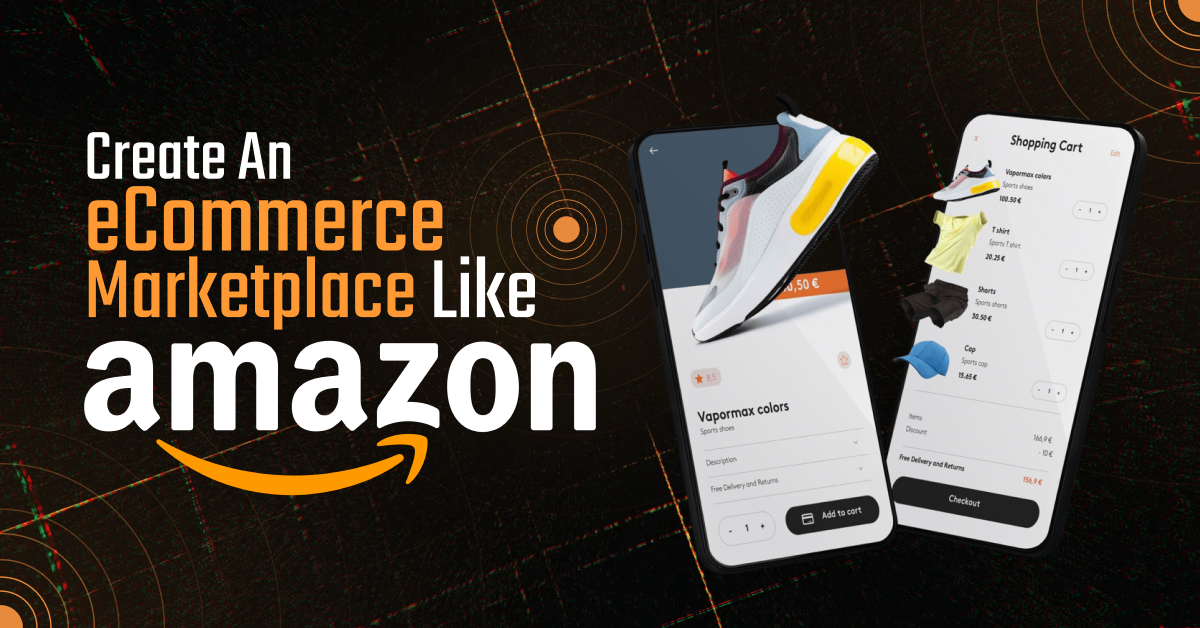Social media is not about the exploitation of technology but service to community.
– Simon Mainwaring
With over 4.89 billion active users on social media, constituting over 75% of the global population, presenting and promoting your business within this extensive user base presents a highly advantageous prospect.
This strategy can significantly amplify your brand recognition. Social Media Marketing effectively accomplishes this, furnishing you with a competitive advantage over your industry counterparts.
Referring to Statista, the expenditure on social media advertising in 2022 reached $230 billion, and projections indicate a trajectory toward $300 billion by the conclusion of 2024. There is a notable shift from conventional marketing approaches to social media marketing, yielding an improved return on investment.
This blog delves into a comprehensive exploration of social media marketing and outlines the potential benefits it can offer your business. For those looking for digital marketing services, connect with Dev Technosys which stands out as a leading social media marketing agency.
What is Social Media Marketing?
![What is Social Media Marketing? [Ultimate Guide 2024] Dev Technosys Social Media Marketing](https://devtechnosys.com/insights/wp-content/uploads/2023/08/Social-Media-Marketing.gif)
Utilizing social media platforms (such as Facebook, Twitter, LinkedIn, Pinterest, and others) to cultivate connections between your brand and your audience is referred to as social media marketing.
Implementing social media campaigns aims to foster brand growth, enhance brand recognition, stimulate sales, and direct traffic toward your website. Social media offers exceptional avenues for engaging your intended audience and patrons.
In strategizing and executing these campaigns, using social media management tool can amplify your utilization of these platforms. An illustrative instance is Social Champ, a social media instrument that can contribute to realizing your social media marketing objectives.
Before delving deeply into the intricacies of devising a social media marketing strategy and plan, we should familiarize ourselves with some fundamental terms and definitions.
What Are Different Social Media Marketing Platforms?
![What is Social Media Marketing? [Ultimate Guide 2024] Dev Technosys What Are Different Social Media Marketing Platforms?](https://devtechnosys.com/insights/wp-content/uploads/2023/08/social-media-marketing-platform.png)
There exist several social media marketing platforms that you might consider utilizing as you formulate your social strategy. While delving into these alternatives, you’ll discover that specific platforms align more effectively with your brand and intended audience than others.
Below is a section we have mentioned various platforms that can enable you to harness the potential of marketing for social media.
1. Facebook
Facebook provides a solid social media marketing platform that enables companies to interact with a vast worldwide audience. It offers efficient brand promotion, consumer contact, and lead creation through targeted ads, analytical analytics, and various content forms. It’s a potent tool to increase brand awareness, promote sales, and build a devoted online community with a user-friendly design.
| Launch Date | February 4, 2004 |
| Users | Over 2.8 billion monthly active users |
| Founders | Mark Zuckerberg, Andrew McCollum, Eduardo Saverin, Chris Hughes, and Dustin Moskovitz |
| Audience | Diverse global audience spanning various age groups, interests, and demographics |
| Industry Impact | Revolutionized social networking, online advertising, and communication |
| Platforms Available | Web, iOS, Android, Oculus VR |
| Best For | Connecting with friends and family, sharing updates, networking, and online marketing |
| Features | Profiles, News Feed, Timeline, Friends, Groups, Pages, Events, Messenger, Live Video, Marketplace, Stories, Reactions (Like, Love, Haha, Wow, Sad, Angry), etc. |
2. TikTok
TikTok is an innovative social media network that enables users to produce, share, and find brief films frequently set to music. TikTok presents businesses with a singular opportunity for creative marketing campaigns due to its captivating and viral nature. It allows them to interact with a varied international audience, promote brand awareness, and increase user engagement through creative and amusing content.
| Launch Date | September 2016 |
| Platform | iOS, Android, Web |
| Audience | Primarily Gen Z and Millennials |
| Users | Over 2 billion downloads (as of knowledge cutoff) |
| Industry Impact | Revolutionized short-form video content creation and consumption, influencing social media trends, music discovery, and viral challenges. TikTok has also become a marketing platform for brands and creators. |
| Best For | Creating and sharing short, creative videos, music discovery, entertainment, viral challenges, influencer marketing, brand promotion, and reaching younger audiences. |
3. Instagram
Instagram is a prominent, heavily visual social networking site where people may post and share pictures and videos. It’s a potent tool for companies to highlight their goods, interact with their target market, and create a distinctive brand identity. With the help of Instagram’s features like Stories, IGTV, and shoppable posts, businesses can connect, develop a devoted following, and increase sales in an aesthetically pleasing setting.
| Users | Over 1 billion monthly active users |
| Audience | Primarily aged 18-34, global reach |
| Industry Impact | Influencer marketing, brand promotion |
| Launch Date | October 6, 2010 |
| Platform Availability | iOS, Android, Web |
| Best Use | Visual storytelling, brand engagement |
4. Twitter
Twitter is a microblogging platform where users publish tweets—short, to-the-point posts. Businesses use their real-time nature to interact with customers, provide updates, and establish a distinctive brand voice. Using hashtags, retweets, and multimedia material strategically allows marketers to spread their messages, start conversations, and spot trends.
Twitter is essential for dynamic social media marketing strategy because of its quick communication and worldwide reach. Hence, if you want to learn more about apps like Twitter’s marketing policy, you must contact the best social media marketing services.
| Launch Date | March 21, 2006 |
| Users | Over 330 million monthly active users |
| Audience | Diverse global audience, particularly popular among journalists, influencers, businesses, and individuals seeking real-time updates |
| Industry Impact | Redefined communication, news dissemination, and real-time engagement |
| Platforms Available | Web, iOS, Android |
| Best For | Real-time updates, news sharing, engaging with audiences, customer service, networking |
5. LinkedIn
The purpose of LinkedIn is to connect professionals for career and business purposes. Businesses can use it as a platform to publish valuable content, network with peers in the field, and display their expertise.
Marketers use LinkedIn to develop thought leadership, cultivate B2B connections, and reach niche audiences with sponsored postings. LinkedIn supports strategic networking and brand development in the professional realm with its business-oriented approach.
| Launch Date | May 5, 2003 |
| Users | Over 774 million members in over 200 countries and territories |
| Audience | Professionals, job seekers, businesses, recruiters, and individuals focused on networking and career growth |
| Industry Impact | Transformed professional networking, job recruitment, B2B marketing, and personal branding |
| Platforms Available | Web, iOS, Android |
| Best For | Building professional connections, job searching, recruiting talent, B2B networking, sharing industry insights |
Read More: Social Media App Development Cost
6. Snapchat
Snapchat is a transient messaging service used for sending pictures and videos? Younger age groups prefer it because of its brief content and interactive elements like lenses and filters. Marketers can use sponsored content and filters to engage consumers by creating engaging and authentic stories. Brands can connect with users in a distinctive, time-sensitive way through Snapchat’s immediacy and entertaining character, encouraging engagement and building brand loyalty. Contact the best SEO expert to learn more about apps like Snapchat’s marketing strategy.
| Launch Date | September 2011 |
| Users | Over 500 million monthly active users |
| Audience | Primarily younger demographic (teens and young adults), focused on ephemeral content sharing and creative expression |
| Industry Impact | Popularized ephemeral messaging, augmented reality filters, and vertical video format |
| Platforms Available | iOS, Android |
| Best For | Sharing short-lived, visual content, connecting with younger audiences, creative marketing campaigns, brand engagement |
7. Pinterest
Users can browse and bookmark photographs (pins) on the visual discovery and bookmarking website Pinterest. By using aesthetically appealing content, marketers may highlight products, increase traffic, and motivate consumers. Pinterest is a valuable medium for increasing brand visibility and boosting sales since businesses can easily target people looking for inspiration and lifestyle ideas with shoppable pins and promoted content.
| Launch Date | March 2010 |
| Users | Over 450 million monthly active users |
| Audience | Predominantly female user base, interested in visual discovery, DIY projects, recipes, fashion, and lifestyle inspiration |
| Industry Impact | Revolutionized visual discovery and inspiration, particularly for home decor, fashion, and lifestyle industries |
| Platforms Available | Web, iOS, Android |
| Best For | Discovering and organizing visual inspiration, driving traffic to websites, e-commerce product promotion, creative branding |
Read More: Best Apps Like Wizz
Benefits of Social Media Marketing
![What is Social Media Marketing? [Ultimate Guide 2024] Dev Technosys Benefits of Social Media Marketing](https://devtechnosys.com/insights/wp-content/uploads/2023/08/Benefits-of-Social-Media-Marketing.png)
With a wide range of advantages for businesses and brands across numerous industries, social media marketing has evolved into a crucial part of contemporary business strategies.
The broad reach, exciting platforms, and interactive features of social media have completely transformed the way businesses interact with their customers. We will examine the many benefits of social media marketing in this section, emphasizing its ability to promote brand awareness, encourage customer interactions, and support innovation.
1. Increased Brand Visibility and Awareness:
Social media platforms allow companies to present their goods and services to a worldwide audience. Companies may quickly reach a large audience and boost the visibility of their brand by strategically creating and sharing content. Maintaining a robust online presence on sites like Facebook, Instagram, Twitter, and LinkedIn helps brands stay at the forefront of consumers’ minds.
2. Enhanced Lead Generation and Website Traffic:
Social media acts as a link between companies’ websites and their online presence. Businesses can increase website traffic and conversion rates by posting quality content and advertising deals. Calls-to-action that are strategically placed and interesting content entice people to explore a brand’s online presence, which can result in lead generation and sales prospects.
3. Direct Interaction and Engagement:
Social media platforms enable communication with customers directly and in real time. Businesses can personally interact with customers, answer questions and concerns, and develop relationships that promote loyalty and trust. Customer satisfaction increases, and their preferences and requirements are better-understood thanks to this two-way communication.
4. Cost-Effective Marketing:
In comparison to more conventional methods of advertising, social media marketing is relatively inexpensive. It’s an enticing choice for companies with tight budgets because it requires little money to create and share content, run targeted ads, and interact with customers. However, businesses may hire SEO experts to fine-tune their social media strategies and enhance their online presence to ensure optimal visibility and effectiveness.
5. Targeted Advertising and Audience Segmentation:
Businesses can target specific demographics, interests, and behaviors through social media platforms. This accuracy ensures that marketing efforts focus on the most pertinent audience, which raises the chances that they will be engaged and convert. To further optimize these targeting capabilities and maximize the campaigns’ impact, some companies hire digital marketers who specialize in leveraging these platforms effectively.
6. Data and Analytics:
Social media sites offer thorough analytics capabilities that let companies monitor the effectiveness of their efforts in real-time. This data-driven strategy enables marketers to evaluate the success of their tactics, make wise choices, and improve their subsequent efforts for better outcomes.
7. Brand Loyalty and Advocacy:
Active social media participation strengthens ties with customers and increases brand loyalty. Customers that are happy with a brand frequently recommend it to their networks, which can result in organic growth and a wider audience.
8. Flexibility and Agility:
Social media marketing offers flexibility and quick modifications, allowing businesses to adjust their strategies in response to shifting consumer preferences, market dynamics, or industry developments to keep their marketing initiatives current and successful. For a more comprehensive approach, some companies collaborate with a digital marketing agency, which brings expertise and a strategic outlook to ensure consistent and effective adaptation in the ever-changing digital landscape.
9. Showcasing Personality and Authenticity:
Social media allows businesses to display their character, principles, and culture. Sharing employee experiences, client testimonies and behind-the-scenes content humanizes the business and cultivates a natural feeling that appeals to consumers. Collaborating with a skilled social media marketing company can further amplify this authenticity and help craft a compelling narrative that resonates with the target audience.
10. Competitive Advantage:
A solid social media presence can provide you an advantage over your competitors, especially in sectors where digital interaction is essential. Brands are better positioned to outperform rivals and maintain relevance in the market if they actively engage with their audience and remain on top of social media trends.
11. Innovation and Creativity:
Social media promotes creativity and innovation in marketing tactics, including the emerging trend of hyperlocal social media marketing. To engage audiences and stand out in a competitive digital market, brands can experiment with various content formats, storytelling strategies, and interactive campaigns.
In A Nutshell!
Social Media Marketing is a dynamic and indispensable strategy in the ever-evolving digital marketing landscape. By harnessing various platforms’ reach, engagement, and targeting capabilities, businesses can amplify brand awareness, foster meaningful connections, and drive tangible results. As we navigate the complexities of the digital age, embracing the power of Social Media Marketing empowers us to create lasting impressions, adapt to trends, and remain at the forefront of an ever-connected world.
Frequently Asked Questions
Q1. What Is Social Media Marketing?
Social media marketing uses social platforms to promote products or services, connect with audiences, and achieve marketing goals through engaging content and targeted campaigns.
Q2. Why Is Social Media Marketing Important?
Social media marketing enhances brand visibility, fosters customer relationships, drives website traffic, and boosts sales by tapping into the vast and active online user base.
Q3. How Do I Start With Social Media Marketing?
Begin by defining your goals, understanding your target audience, selecting suitable platforms, creating compelling content, scheduling posts, and analyzing performance for continuous improvement.
Q4. Which Social Media Platforms Should I Use?
Choose platforms based on your target audience’s preferences and your business type. Popular options include Facebook, Instagram, Twitter, LinkedIn, TikTok, and Pinterest.
Q5. What Are Key Social Media Marketing Trends In 2023?
Live streaming, influencer collaborations, ephemeral content, augmented reality (AR) experiences, and ethical data practices are shaping social media marketing strategies in 2023, enhancing user engagement and personalization.
![What is Social Media Marketing? [Ultimate Guide 2024]](https://devtechnosys.com/insights/wp-content/uploads/2023/08/What-is-Social-Media-Marketing.png)



























